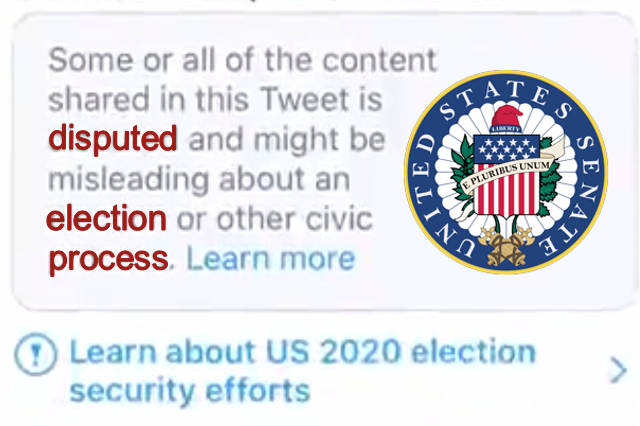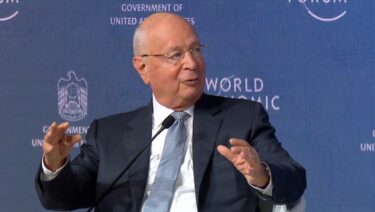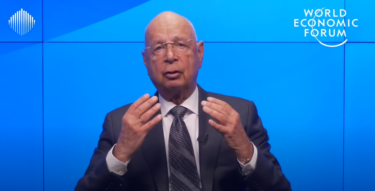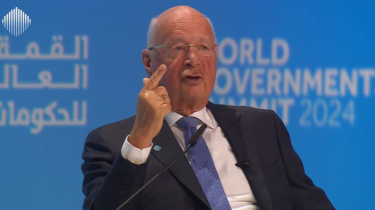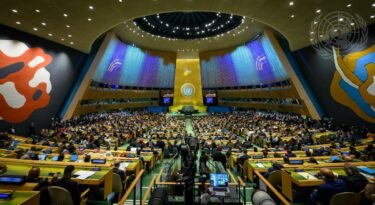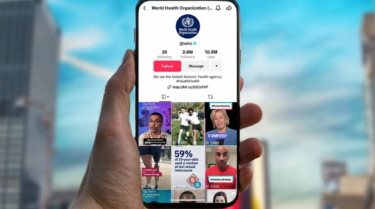As information warfare exposes two completely different versions of reality concerning the presidential election, the Senate is slated to grill the CEOs of Facebook and Twitter about their ongoing roles in censoring and suppressing election-related content.
Facebook CEO Mark Zuckerberg and Twitter CEO Jack Dorsey have both agreed to testify in a hearing before the Senate Judiciary Committee on November 17, less than three weeks after sitting in the hot seat before the Senate Commerce Committee on October 28.
While hardly anybody expects any meaningful action to ever come out of these big tech hearings in Congress, what is said under oath can later be used as fodder to feed legal actions in other jurisdictions.
For example, less than three months after Google CEO Sundar Pichai testified before the House Judiciary Committee on July 29, the Department of Justice and 11 state attorneys general smacked his company with an antitrust lawsuit on October 20, and the accusations put forth mirrored those of lawmakers who made the same exact claims during Congressional hearings.
With the current US presidential election still in limbo nine days after the November 3 election day, Facebook and Twitter have been censoring and slapping disputed claims warnings on posts that allege evidence of election improprieties, including flagging nearly half of all the US president’s social media posts.
Donald Trump’s Twitter feed is full of censored tweets. #Election2020 #elections pic.twitter.com/wRSIpThHMM
— Kamil Karamali (@KamilKaramali) November 5, 2020
Claims of irregularities in the election process are being marked as “disputed” on social media, but certain facts remain:
- The election hasn’t been legally certified by all the states
- Lawsuits have been filed over election integrity
- Georgia will be recounting every ballot by hand
Meanwhile, both Zuckerberg and Dorsey are slated to be put under oath next Tuesday to give testimony on the decisions their companies made to censor and suppress content during the presidential election, and anything the big tech CEOs say on record can and will be used against them.
Through the questions they ask and the accusations they fling, lawmakers tip their hands to show where they will strike big tech next
As bureaucratic and slow the US Congress is, one silver lining is that the hearings can show glimpses of things to come.
Through the questions they ask and the accusations they fling, lawmakers tip their hands to show where they will strike big tech next, such as removing big tech immunity under Section 230.
For example, Senator Josh Hawley recently went on the highest-rated cable TV news show in history to say that that Congress must act now to “take away the special immunity [under Section 230] that these tech companies get for this censorship.”
#BigTech will keep right on censoring & spying & cheating until Congress stops it. It’s that simple. Congress must quit talking and ACT pic.twitter.com/WnqMl9np01
— Josh Hawley (@HawleyMO) October 29, 2020
Other Senate Judiciary Committee members who will also grill Dorsey and Zuckerberg next week have publicly addressed their concerns over the selective censorship on Twitter and Facebook — to which the CEOs struggled to recall a single person whom they censored on the left (when pressed during the last hearing), but could readily give examples of those instances on the right.
In the October hearing, Senator Mike Lee, who is on both the Senate Judiciary and Commerce Committees, told the big tech CEOs, “There is a disparity between the ‘censorship’ of conservative and liberal points of view, and it’s an enormous disparity […] But given the disparate impact of who gets censored on your platforms, it seems that you’re either one: not enforcing your terms of service equally, or alternatively, two: that you’re riding your standards to target conservative viewpoints.”
A brave patriot. More & more people are stepping forward to expose this Rigged Election! https://t.co/DfOVDQu2Qp
— Donald J. Trump (@realDonaldTrump) November 11, 2020
Next week’s scheduled hearing on big tech censorship during the election was put into motion before November 3, but the evidence of censorship has been growing ever since, and America still doesn’t know who will be president in 2021.
The media has “projected” victory for Joe Biden, and there’s a very good chance that the claim could later be proven accurate, but as of today, the election isn’t over.
Court battles are being fought, and the information warfare rages on.
Citizens of a free nation cannot make informed decisions when they are restricted from sharing and reviewing the counterarguments
Censoring the views of nearly half the country only amplifies the confusion, anger, and hostility that has already polarized the nation.
Citizens of a free nation cannot make informed decisions when they are restricted from sharing and reviewing the counterarguments.
Censorship takes away the people’s ability to objectively evaluate all of the information at hand, which is especially dangerous in a social media environment where every side has a completely different version of reality based on the information they are permitted to see or not see.
But those who seek will surely find, and their paths to discovery may trod the alternative routes less traveled than the ones paved by big tech and media companies.



